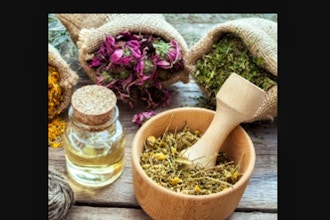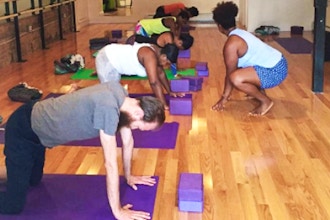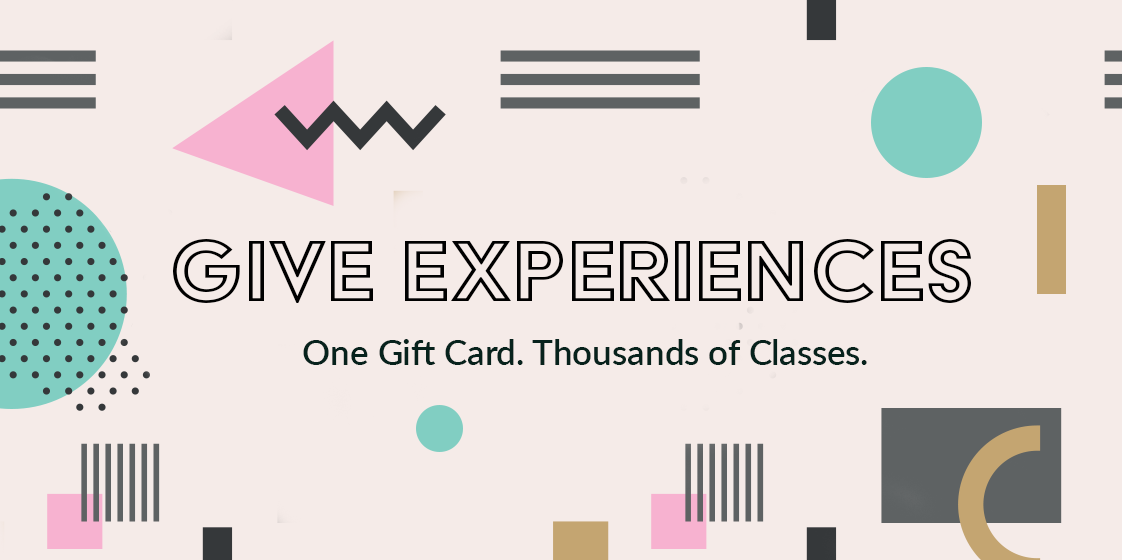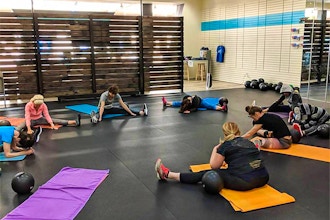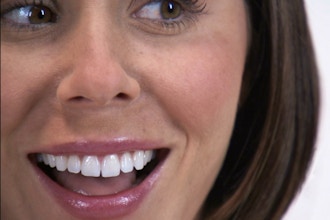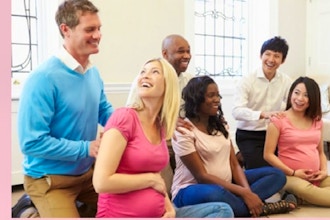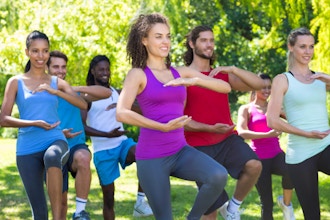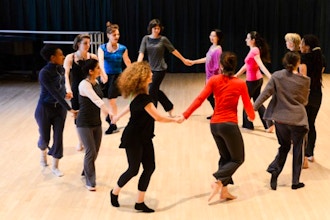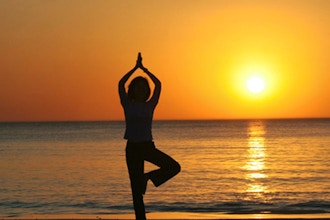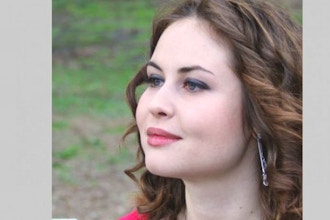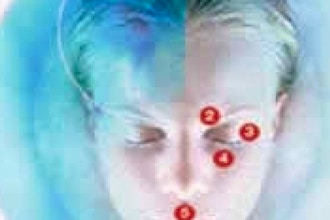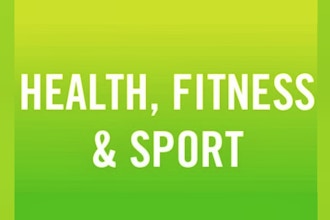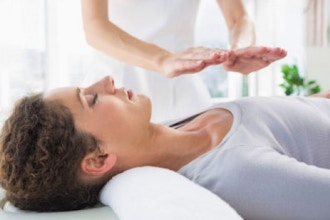Best Health Classes in NYC
What do you think of when you think of the term “health?” Or what it means to be healthy? Chances are you’ve heard a few things and have thoughts about both. But as you think about what those ideas mean to you, does it include these areas?
- Physical
- Mental health/psychological
- Social
- Emotional
- Ability to adapt to change
Research shows that a solid understanding and definition of health includes all of these aspects. In other words, it’s more than working out and eating “healthy” foods. There are actually three competing views on what being healthy means.
The first comes from the World Health Organization (WHO), who defined the standard in the 1940s as “without disease or infirmity.” Essentially if you’re not sick you’re healthy. Later on, scientists publishing in The Lancet further specified that wellness includes “complete physical, mental, and social well-being.” Research has shown that to be healthy, you must also be able to adapt to the environment around you, adding another layer of complexity to this seemingly simple concept.
Because health impacts everyone and it involves many active pieces, there’s always ongoing exploration and new findings. There probably always will be. One thing is clear about health: it’s unique to each person. Though there are patterns and general advice everyone can follow, your wellness is individual to you because everyone has different needs.
If health encompasses all of these areas, how do you actually learn about it? What’s involved in taking care of yourself in all of the areas?
Physical health has to do with the body. The major components are movement, nutrition, and sleep. The goal with physical wellness is for your body to be in top working condition. To do this, you’ll need to get active and move your body, eat nutritious foods, and ensure you get enough sleep each night. The physical factors are the ones you tend to learn about as a kid in school, meaning they’re probably familiar—that doesn’t make them less important to your wellness. Not to mention, there’s a direct and obvious impact when you don’t take care of your body, whatever that might look like for your wellness needs.
Mental health consists of multiple types of wellbeing: social, emotional, and psychological. One often overlooked area of health and wellness is your ability to form and maintain strong relationships with others. This is called social wellbeing. Being emotionally healthy means that you’re aware of your strong feelings, positive and negative, and can manage them effectively. Related to managing your relationships and emotions, psychological health involves feeling satisfied with your life. It includes problem-solving in difficult situations as well. This is critical when you’re encountering strong feelings and healthy relationships.
Being a human is complicated, which is why both physical and mental health are important. They’re two sides to the same coin.
The 1940s was a busy time for health. The WHO may have set a standard definition that became popular and widely used, but George Canguilhem’s model of adaptability set the stage for the idea of personalized medicine. A French physician, Canguilhem asserted that because health isn’t a fixed property, people have to be able to adapt to their surroundings. Environmental changes are inevitable and humans must change with it. Interestingly enough, Canguilhem’s adaptability model includes physical, mental, social, and emotional wellness like the more modern and encompassing definitions used today.
Health has been and will continue to be a critical research topic, especially as technology advances. Researchers can now discover things they couldn’t have even 20 years ago because of these advances. This means that you can always continue learning about how to become your healthiest self.
Why You Should Learn Health in NYC
Many people who live in New York City choose to live there because of the:
- Range of diversity
- Job and financial opportunities
- Food and cuisine
- Nightlife and entertainment
- Culture
Some of these reasons are exactly why it’s important to learn about health. The “workaholic” career culture can be quite detrimental to sleep patterns. NYC is often called “The City that Never Sleeps,” but people actually do need sleep. Working too many hours in jobs that are typically stressful also causes stress and emotional strain, which isn’t good for your overall well being.
There are an abundance of delicious restaurants, but you need to know what you’re putting in your body in order to make smart choices. You don’t have to avoid your favorite “greasy spoon” restaurant, for instance, but you probably shouldn’t eat there every day.
You should probably consider learning about health in NYC; however, it doesn’t have to be boring or feel like you’re being lectured at like you were in school. In fact, there are many ways to learn about health-related topics that are fun and engaging. When you’re learning about an interesting topic, you’ll feel more confident and adventurous to try new things. Plus, you’ll have more energy and a better sense of what will work in your life.
Learning about health may feel productive, adn the human brain loves productivity. When you do something productive, or feel like you’re being productive, you get a boost of dopamine, the happy hormone.
In-Person Health Classes & Schools in NYC
NYC is a huge place, so there are lots of places to learn about health throughout the city. Having a multitude of choices may feel overwhelming at first, but a good place to start your research is CourseHorse.
In Chelsea, Manhattan, Balance Arts Center offers Walking Well. This class is ideal for those who want to begin a new walking habit or want a way to move their body without the high impact of aerobic exercise. Instructor Lindy Rogers will explain how the body works when you’re walking and demonstrate the Alexander Technique. This strategy improves balance and positively impacts your posture. If you enjoy class, there are additional topics in this series for related topics such as breathing while walking.
Vibra Wellness, also in Chelsea, hosts Reiki Level 1 Training and Certification. Reiki is a soothing set of techniques to promote healing and reduce stress. This two-day certification course starts at the beginning, explaining Reiki’s history and ideals, as well as the Reiki energy concept. After you learn how to place your hands, work with the environment, and Reiki Level I Placements, you’ll be a certified Reiki practitioner.
If you’re interested in holistic wellbeing, Herbs 101: Intro to Medicinal Herbs by Remedies Herb Shop in Brooklyn could be quite interesting. The 90-minute session explores the Wise Woman Tradition of Traditional Herbal Medicine. During this time, instructor Jo Anne Richards will explain how herbal medicine and natural healing compares to Western medicine. She’ll show you how to create your own tinctures, salves, and herbal medicine that you can take home after class.
Virtual Health Classes & Schools
Prefer to learn online? There are a number of great online health classes available. A few of the best perks of learning online are:
- Don’t have to wait in traffic or do a long commute
- Can join class from anywhere that has a stable internet connection
- Face less distractions or anxiety with a new activity when you’re in a familiar space
- If you’re taking a physical course like yoga, there won’t be anyone around to compare yourself to (or to see you when you’re sweaty at the end of class)
- More specialty topics to choose from with instructors from all over the country
When you take an online course, you do generally have to provide at least some supplies for class; however, you’ll receive a list with enough time to grab the items you need. Many times, the instructor will also send you key materials you’ll need to participate and/or share recommendations on where to get what you need.
Curious about essential oils? Virtual Essential Oil Basics by Linda Giammarese is a wonderful way to learn the basics about how essential oils can care for and improve your health. She’ll show you common oils and demonstrate how you can use them in your own life. You don’t have to have oils or other materials before class, but you can ask questions about specific properties and scents during class if you have a favorite.
If you enjoy writing or yoga, you’re likely to enjoy this creative course by 92nd Street Y. YogaProse: A Virtual Yoga & Writing Workshop combines relaxing and meditative techniques from yoga with the joys of creating. During class, you’ll connect with your body and express your feelings through writing. Since the class is only 60 minutes long, you’ll get the perks of a creative practice without having to share your writing with anyone.
Private Group Health Classes in NYC
If you’re interested in scheduling a fun and relaxing team-building event for your organization, CourseHorse has private group health classes that could make your search easier.
Virtual Rough Day Recharge is a great way for up to 100 individuals to unwind and feel refreshed during a busy day. From guided meditation to desk stretches to cute puppy trivia, this session is an ideal way to give you room to be human and enjoy yourself for a little while with peers. The optional add-on of custom fidget and stress toys for each participant is a nice gift, too.
Want something a little more hands-on? Try this Virtual Vision Board Workshop. Not only will a professional artist go over what a vision board is and what it looks like, but they’ll also be there to guide you as you begin your own vision board. The course fee includes a cork board, push pins, and a book of inspirational images to get you started. Up to 100 people can participate, almost ensuring an outpouring of creativity and joy during this one-hour session.
When you book a course like one of these through CourseHorse, nifty perks include:
- Booking confirmation within 24 hours
- No booking fees
- Several video platforms supported for virtual session
- Can adjust your group size after booking
When you’re ready to discuss options, or even have a simple question, reach out to CourseHorse through the contact form on their website. The team will be able to answer questions and even discuss a potential demo, if you’re interested.

